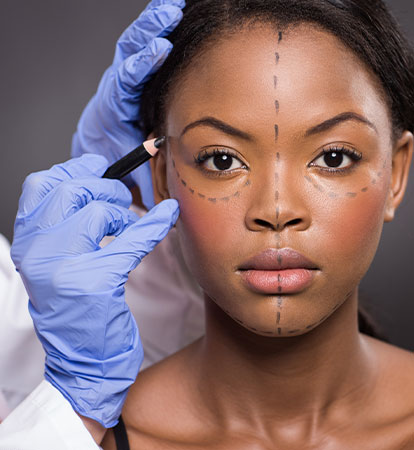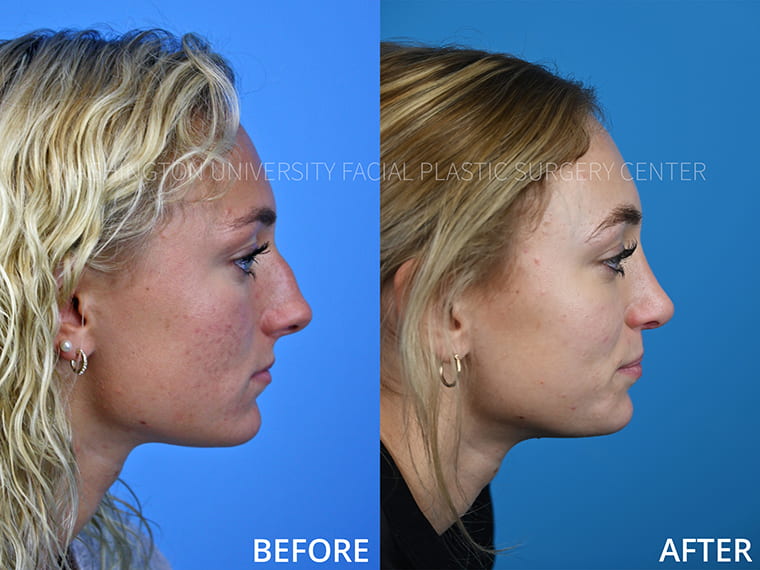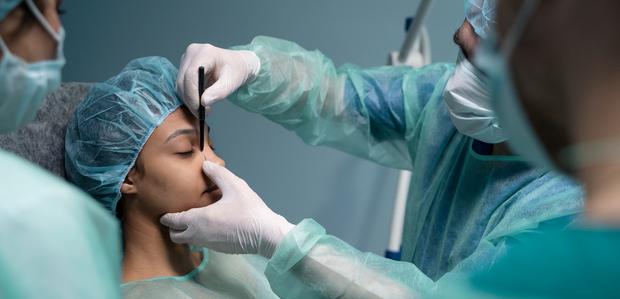A Deep Study the Common Reason for Looking For Cosmetic Surgical Treatment: Unloading the Need for Change and Self-Improvement

Societal Stress and Beauty Criteria
Often, societal stress and prevailing appeal standards play a substantial function in individuals' decisions to seek plastic surgery (liposuction bellevue). In modern society, visual depiction heavily affects personal assumptions of beauty, often perpetuated by media, celeb endorsements, and social platforms. These networks frequently advertise idyllic variations of beauty, leading individuals to internalize these standards and examine their self-worth versus them

Additionally, these stress are not restricted to particular demographics; they impact people throughout numerous ages, sexes, and backgrounds, highlighting the prevalent nature of elegance criteria. This extensive impact elevates essential questions regarding the ethics of cosmetic surgical procedure and the ramifications of social standards on specific options. Eventually, understanding these pressures is important for promoting a much more inclusive interpretation of charm that celebrates diversity.
Individual Experiences and Transformative Stories
Many people who undergo plastic surgery record transformative experiences that prolong beyond simple physical modifications. For many, these procedures work as a stimulant for enhanced self-confidence and a renewed feeling of identity. Patients frequently define feeling liberated from long-standing instabilities, resulting in enhanced self-confidence in both individual and professional worlds.
Take, for example, the story of a young woman that underwent bust augmentation after years of sensation uncomfortable about her appearance. Post-surgery, she reported not only a newly found convenience in her body but also a considerable renovation in her social life and career chances. Likewise, a middle-aged guy who selected to go through a renovation shared exactly how the procedure revitalized his expectation on life, prompting him to go after brand-new passions and relationships.

Emotional Elements Behind Plastic Surgery
Countless mental elements contribute to the choice to undergo cosmetic surgery, reflecting deeper psychological and mental wellness factors to consider. Individuals frequently go after surgical improvements as a way to address sensations of insufficiency, low self-worth, or discontentment with their appearance. These mental motivations can be rooted in past experiences, social comparisons, or personal desires.
Body picture distortion is a widespread concern, where people perceive their physical features in an exaggeratedly unfavorable light. This distortion can bring about obsessive ideas concerning viewed flaws, triggering the need for surgical alteration as a solution. Additionally, the pursuit of excellence and social pressures can enhance these feelings, pushing people towards aesthetic procedures in hopes of attaining an idealized version of themselves.
Moreover, the principle of self-improvement plays an important duty. Several people check out plastic surgery as a pathway to enhance their lifestyle, thinking that enhanced appearance will result in raised social acceptance, better partnerships, or improved occupation possibilities. Eventually, the emotional factors behind plastic surgery highlight the intricate interplay between private self-perception and exterior influences, exposing the complex nature of the need for modification.
The Function of Media in Perception
In today's society, media plays a critical function fit understandings of appeal and self-respect. Through numerous systems-- social media, tv, and marketing-- idyllic criteria of beauty are often disseminated, affecting specific desires and self-image. These portrayals often highlight narrow meanings of attractiveness, predominantly featuring younger, slim, and digitally boosted photos, which can produce unrealistic standards for people striving to adapt.
The influence of media is further intensified by the prevalent nature of social media sites, where individuals are bombarded with curated content that highlights cosmetic improvements, endorsing a society of contrast. This consistent exposure can cause sensations of inadequacy among customers, prompting them to think about cosmetic surgical treatment as a method of accomplishing the regarded ideal. Research study indicates that people who involve with these media representations are much more most likely to share dissatisfaction with their appearance, enhancing the need for surgical interventions.
Furthermore, the normalization of cosmetic surgical procedure in media stories can desensitize target markets, mounting such procedures as commonplace and also needed for social approval. Hence, the media's portrayal of charm not just influences individual choices regarding cosmetic surgical treatment however likewise adds to a wider social dialogue concerning self-respect and identity.
Future patterns and honest considerations
Amid the growing popularity of plastic surgery, ethical factors to consider surrounding the method have actually become significantly prominent. As the need for treatments climbs, so also do problems pertaining to educated approval, the emotional inspirations of individuals, and the possibility for exploitation by surgeons. It is vital for professionals to ensure that clients fully recognize the advantages and risks, along with the ramifications of their choices, to cultivate a liable method to cosmetic improvements.
Additionally, the impact of social media and elegance requirements raises inquiries regarding the influence on psychological try this website health and wellness, particularly amongst prone populations. As recognition of body photo issues expands, moral technique demands a cautious evaluation of the motivations behind medical interventions. Surgeons need to balance patient desires with moral duty, making certain that decisions are rooted in real self-improvement as opposed to societal pressures.
Aiming to the future, patterns might change towards non-invasive and technologically advanced treatments, highlighting individual security and fulfillment. Additionally, the consolidation of emotional examinations can help attend to underlying problems prior to medical intervention. The plastic surgery field need to adjust to these moral challenges while promoting a society of transparency and self-acceptance, eventually focusing on the health of people.
Verdict
In verdict, the search of cosmetic surgical procedure is affected by a convergence of social pressures, individual experiences, and psychological factors. As moral factors to consider Related Site evolve, future fads in cosmetic surgical procedure will likely show continuous societal discussions bordering self-improvement and private identification.
Frequently, social stress and prevailing appeal standards play a substantial function in people' decisions to pursue cosmetic surgery. liposuction bellevue. Inevitably, these transformative tales highlight the diverse reasons individuals look for cosmetic surgical treatment, linking personal development with the search of aesthetic enhancement
Numerous people check out cosmetic surgery as a pathway to boost their high quality of life, believing that improved look will lead to enhanced social approval, much better relationships, or boosted occupation opportunities. Eventually, the emotional elements behind cosmetic surgical procedure highlight the complex interplay in between individual self-perception and outside influences, revealing the diverse nature of the hop over to these guys need for change.
As ethical considerations develop, future trends in cosmetic surgical procedure will likely mirror ongoing social discussions surrounding self-improvement and individual identification. liposuction bellevue.